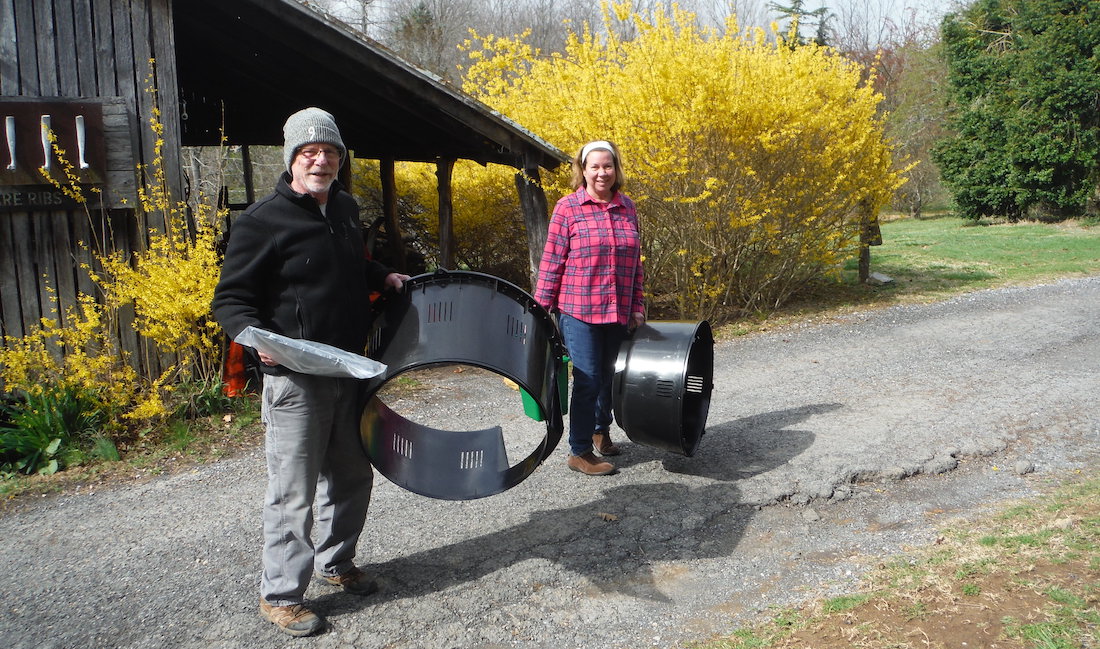
As I write this blog we are completing Week #3 of the Backyard Compost Challenge and going strong. Take a look at the weekly data table and check out the range of numbers submitted every Saturday; we run the gamut from 0 lbs to nearly 30 lbs of food waste per household diverted each week. (Keep in mind that we have a preschool class and a church group among our fellow participants.)
It is so great knowing that all these scraps are being used to make luscious compost instead of going to the Rockbridge County landfill. But, while we seem to agree that composting our scraps is better than throwing them away, I wonder if we’re all clear on exactly why that’s the case. There’s an important reason for composting in addition to making great soil for your garden.
Why shouldn’t food scraps go to the landfill? Wouldn’t they decompose there, too? Well, it’s complicated. Our friends at the World Wildlife Fund explain the difference between food decomposing in the compost and food rotting in the landfill really well. They say: “Composting produces one greenhouse gas called carbon dioxide. When food waste is composted, it is digested by bacteria with oxygen, releasing carbon dioxide. When food is put in landfills, it is digested by bacteria without oxygen, releasing methane, a greenhouse gas that can heat our planet 25 to 30 times more powerfully than carbon dioxide. That’s why compost is better than landfill: because it produces the kind of gas that warms our planet less.”
Our planet does need some greenhouse gasses (GHG) to create a warming and protective atmosphere, but enough already! As most of us know, the urgent goal these days is to reduce the level of greenhouse gasses (GHG) in our atmosphere to better manage climate change. Much of the excess comes from burning fossil-fuels and some, as you just learned, comes from other sources like landfills. The impact of carbon dioxide emitted from our composting is much less severe than that from methane produced by our food rotting in the landfill. This means you are doing your part protecting our planet by repurposing your food scraps right in your own backyard.
As the project proceeds you’ll likely have more questions about composting. Don’t forget to check out our project FAQ pages for composting and for food waste and landfills. You can also access compost coaching via Boxerwood friend, Master Gardener compost coach Phyllis Fevrier. Here’s her contact information: Phyllis Fevrier: (540) 460-9298. Call and leave a message. She will return your call. Onwards, team!
